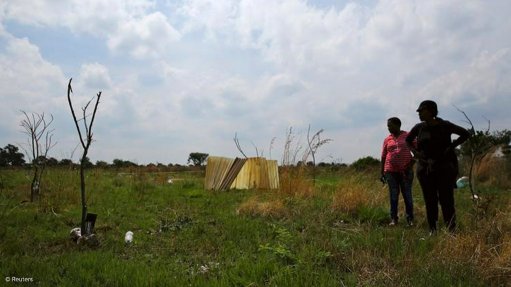
Photo by: Reuters
I have submitted parliamentary questions to the MEC for Agriculture,
Land Reform and Rural development Mr. Norman Shushu to ascertain
exactly how the recently established District Land Committees will
function and their terms of reference.
The department announced recently the establishment of DLCs in the
province’s five districts.
While we welcome this process to give land to previously disadvantaged
communities, it is imperative to scrutinize the terms of reference of
these committees and understand clearly their scope of operation in
order to avoid any conflict of interest and irregularities that may
occur.
Furthermore I want to ascertain from the MEC the funding mechanism
that the department has put in place to resource the DLCs to achieve
its objectives.
The DA supports land reform processes that achieve redress in rural
communities, that promotes economic inclusion to lift rural people out
of poverty, and supports growth and prosperity in the agricultural
sector.
As land is directly related to food production and food security,
programmes that affect land ownership and land use must prioritise the
need to ensure the continued supply of food at prices that are
affordable to ordinary South Africans.
Progress in achieving equitable land ownership has been very slow and
the ANC government’s land reform approach has not been successful in
establishing an emerging class of commercial farmers.
Our land reform strategy must be informed not by the need to achieve
quantitative land targets, but by the objectives to (i) support a
thriving commercial agricultural sector that can protect South
Africa’s food security, (ii) promote emerging small-scale farmers
where economically viable, and (iii) alleviate poverty and support
household food security through appropriate assistance for subsistence
agriculture.
The success of land reform should therefore be determined in terms of
the livelihoods created or supported and economic value created,
rather than the hectares of land transferred.
Issued by DA